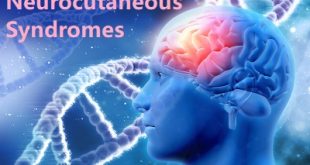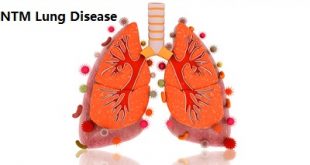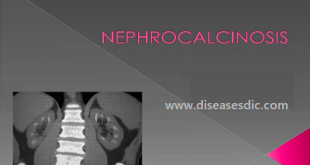Overview
Narcissistic personality disorder is characterized by a long-standing pattern of grandiosity (either in fantasy or actual behavior), an overwhelming need for admiration, and usually a complete lack of empathy toward others. People with this disorder often believe they are of primary importance in everybody’s life — and to anyone they meet. While this pattern of behavior may be appropriate for a king in 16th century England, it is generally considered inappropriate for most ordinary people today.
People with narcissistic personality disorder often display snobbish, disdainful, or patronizing attitudes. For example, an individual with this disorder may complain about a clumsy waiter’s “rudeness” or “stupidity,” or conclude a medical evaluation with a condescending evaluation of the physician. In layperson terms, someone with this disorder may be described simply as a “narcissist” or as someone with “narcissism.” Both of these terms generally refer to someone with narcissistic personality disorder.
Pathophysiology
The exact mechanism by which NPD develops is unknown. Biologic, psychological, social, and environmental factors all probably play a role, but further research is necessary to confirm this supposition. Several psychodynamic theories point to an unhealthy early parent-child relationship as salient in the development of the disorder. To date, no genetic links to the disorder have been determined, but future research into the biologic basis of personality disorders may yield more information on the origins of NPD.
From a psychoanalytic standpoint, the 2 main schools of thought regarding the origins of the disorder are the object-relations model described by Otto Kernberg and the self-psychology model developed by Heinz Kohut. Both models posit that an inadequate relationship between parent and child lays the groundwork for the eventual development of NPD.
According to Kernberg, NPD is the result of a young child having an unempathetic and distant mother who is hypercritical and devaluing of her child. As a defense against this perceived lack of love and to guard against emotional pain, the child creates an internalized grandiose self. Kernberg believed that this grandiose self was a combination of the following 3 elements:
- The child’s own positive traits
- A fantastical, larger-than-life version of himself or herself
- An idealized version of a nurturing mother
Causes of narcissistic personality disorder
The causes of NPD aren’t well understood. However, inherited genetic defects are thought to be responsible for many cases of NPD. Contributing environmental factors may include:
- Childhood abuse or neglect
- Excessive parental pampering
- Unrealistic expectations from parents
- Sexual promiscuity (often accompanies narcissism)
- Cultural influences
Risk factors
Narcissistic personality disorder is rare. During childhood and teen years, children may show traits of narcissism, but this may simply be typical of their age and doesn’t mean they’ll go on to develop narcissistic personality disorder.
Narcissistic personality disorder affects more males than females, and it often begins in the teens or early adulthood.
Although the cause of narcissistic personality disorder isn’t known, some researchers think that in biologically vulnerable children, parenting styles that overemphasize the child’s specialness and criticize fears and failures may be partially responsible. The child may hide low self-esteem by developing a superficial sense of perfection and behavior that shows a need for constant admiration.
Symptoms
Signs and symptoms of narcissistic personality disorder and the severity of symptoms vary. People with the disorder can:
- Have an exaggerated sense of self-importance
- Have a sense of entitlement and require constant, excessive admiration
- Expect to be recognized as superior even without achievements that warrant it
- Exaggerate achievements and talents
- Be preoccupied with fantasies about success, power, brilliance, beauty or the perfect mate
- Believe they are superior and can only associate with equally special people
- Monopolize conversations and belittle or look down on people they perceive as inferior
- Expect special favors and unquestioning compliance with their expectations
- Take advantage of others to get what they want
- Have an inability or unwillingness to recognize the needs and feelings of others
- Be envious of others and believe others envy them
- Behave in an arrogant or haughty manner, coming across as conceited, boastful and pretentious
- Insist on having the best of everything — for instance, the best car or office
At the same time, people with narcissistic personality disorder have trouble handling anything they perceive as criticism, and they can:
- Become impatient or angry when they don’t receive special treatment
- Have significant interpersonal problems and easily feel slighted
- React with rage or contempt and try to belittle the other person to make themselves appear superior
- Have difficulty regulating emotions and behavior
- Experience major problems dealing with stress and adapting to change
- Feel depressed and moody because they fall short of perfection
- Have secret feelings of insecurity, shame, vulnerability and humiliation
Complications
Complications of narcissistic personality disorder, and other conditions that can occur along with it, can include:
- Relationship difficulties
- Problems at work or school
- Depression and anxiety
- Physical health problems
- Drug or alcohol misuse
- Suicidal thoughts or behavior
Diagnosing Narcissistic Personality Disorder
As the name implies, mental health professionals characterize narcissistic personality disorder as a type of personality disorder. The characteristics of people with narcissistic personality disorder are fairly diverse. However, there is a core set of features common to most people with this condition. The American Psychological Association has a set of guidelines on how to diagnose narcissistic personality disorder that psychologists refer to when they interview a patient. These symptoms are listed in their official book Diagnosis and Statistics of Mental Disorders (DSM 5):
- A pervasive pattern of grandiosity (making themselves appear impressive)
- Need for admiration
- Fantasies about power, success, beauty or an idealized vision of love
- Sense of entitlement
- Belief of being special, unique or high-status
- Lack of empathy for others
- Tendency to exploit others
- Arrogant behavior
People with narcissistic personality disorder spend a significant amount of time comparing themselves to others. They often have fantasies about being exceptionally successful in their careers. Some individuals with this condition consider themselves to be superior to others, while others are overly critical of their own flaws. People with NPD may be highly resistant to criticism or highly sensitive to perceived slights.
Is there a treatment for narcissism?
Therapy is the most effective treatment for narcissism. Effective therapy focuses on two components of NPD:
(1) The emotions and beliefs that drive NPD, such as entitlement; and
(2) The behaviors associated with narcissism. Effective therapy involves helping a person with NPD understand how their emotions drive their behavior. A therapist can then work with a client to set goals for behavior changes.
Some treatment approaches that may help include:
- Psychodynamic approaches. Psychodynamic psychotherapy that uses the relationship between the therapist and the client as a way to transform the client’s other relationships may be helpful. This approach to therapy can also support a client to better understand the root causes of their emotions and behaviors.
- Therapy for other personality disorders. Some clinicians find that treatments designed for other personality disorders, such as dialectical behavior therapy (DBT) for borderline personality, can address many symptoms of NPD.
- Approaches that target psychological skills. A 2015 review suggests that mentalization therapy, schema therapy, and transference-focused therapy may be helpful. These approaches each work to help a person understand their emotions and psychological states, so that they can respond to others in less harmful ways.
Your psychotherapist may also recommend medications to treat symptoms like anxiety and depression. Medications include:
- Antidepressants: These medications treat depression. Healthcare providers commonly prescribe selective serotonin reuptake inhibitors (SSRIs). This class of drugs has fewer side effects than other antidepressants. SSRI medications include fluoxetine, sertraline and paroxetine.
- Mood stabilizers: To reduce mood swings, your provider may prescribe a mood-stabilizing drug such as lithium.
- Antipsychotic drugs: This type of medication can help with symptoms of depression and anxiety. Aripiprazole and risperidone are two kinds of antipsychotic drugs.
Lifestyle and home remedies
You may feel defensive about treatment or think it’s unnecessary. The nature of narcissistic personality disorder can also leave you feeling that therapy is not worth your time and attention, and you may be tempted to quit.
However, it’s important to:
- Keep an open mind. Focus on the rewards of treatment.
- Stick to your treatment plan. Attend scheduled therapy sessions and take any medications as directed. Remember, it can be hard work and you may have occasional setbacks.
- Learn about it. Educate yourself about narcissistic personality disorder so you can better understand symptoms, risk factors and treatments.
- Get treatment for substance abuse or other mental health problems. Your addictions, depression, anxiety and stress can feed off each other, leading to a cycle of emotional pain and unhealthy behavior.
- Learn relaxation and stress management. Try stress-reduction techniques, such as meditation, yoga or Tai chi. these can be soothing and calming.
- Stay focused on your goal. Recovery from narcissistic personality disorder takes time. Stay motivated by keeping your recovery goals in mind and reminding yourself that you can work to repair damaged relationships and become happier with your life.
Prevention of Narcissistic personality disorder
Because the cause of narcissistic personality disorder is unknown, there’s no known way to prevent the condition. However, it may help to:
- Get treatment as soon as possible for childhood mental health problems
- Participate in family therapy to learn healthy ways to communicate or to cope with conflicts or emotional distress
- Attend parenting classes and seek guidance from therapists or social workers if needed
 Diseases Treatments Dictionary This is complete solution to read all diseases treatments Which covers Prevention, Causes, Symptoms, Medical Terms, Drugs, Prescription, Natural Remedies with cures and Treatments. Most of the common diseases were listed in names, split with categories.
Diseases Treatments Dictionary This is complete solution to read all diseases treatments Which covers Prevention, Causes, Symptoms, Medical Terms, Drugs, Prescription, Natural Remedies with cures and Treatments. Most of the common diseases were listed in names, split with categories.








Does setting big goals about life makes someone a narcissist?Can a person have more than 2 -3 symptoms and yet not a narcissist?
Its not the size of the goal that matters, in fact people with NPD can be very good goal achievers, until they push it too far.
Its the motivation for the goal that matters. Grandiosity is driven by the need to avoid and compensate for a profound feeling of worthlessness.
what shall be given to a person who had mental problem, being treated and still looks dull, though recovered.
For someone who has recovered from a mental health problem but appears dull, ongoing support is crucial. This includes continuation of therapy, consistent medication management, promotion of a healthy lifestyle, fostering social support, engagement in fulfilling activities, and regular check-ups with healthcare providers. Maintaining open communication with the healthcare team is essential for addressing any lingering concerns and ensuring sustained well-being.